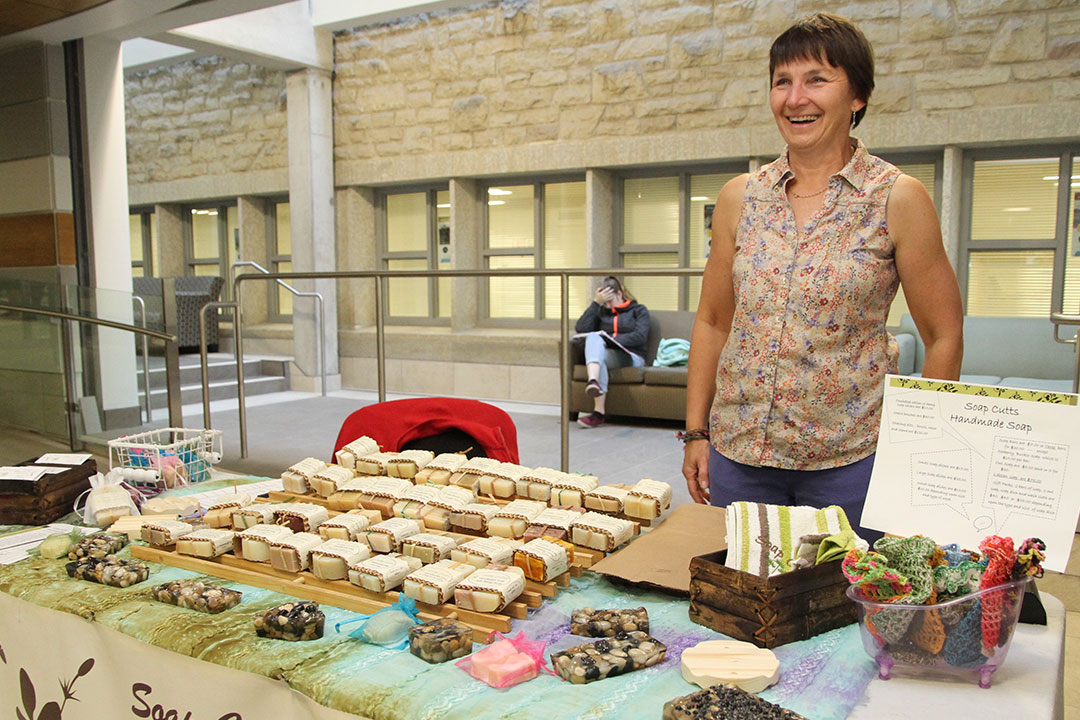
To market, to market
Since its start last September, the monthly U of S farmers’ market has offered a variety of local food and fare to the campus community.
By Lesley PorterA collaborative effort between the Office of Sustainability, the University of Saskatchewan Students’ Union and the Saskatoon Farmers’ Market, the campus market recently shifted its day of operation from Friday to Thursday. What hasn’t changed, however, is the variety of eclectic handmade goods available each month in upper Place Riel.
“There is definitely a lot to see and smell and sample,” said Matt Wolsfeld, community engagement co-ordinator in the Office of Sustainability. “It’s a great way to connect with customers who can’t make it to a weekend market, want to pick up a few things on their coffee break, or for those who want to discover local producers and try something new.”
The vendors see it that way, too.
“Consumers want to know their producers,” said Gail Cutts, owner of Soap Cutts Handmade Soap. “The human-to-human connection is so important. We are supporting and strengthening our local community with each interaction.”
A former teacher, Cutts jumped at the chance to get back into an educational environment, albeit in a different role.
“I love the energy on campus,” she said. “Students are curious and creative. Their professors and supporting staff are always feeding that curiosity. It makes for great discussions about handmade products—both the outcome and the process.”
The creative process— something not typically associated with mass-produced goods—is another draw for Cutts.
“It is such a rush when you unmold a batch of soap,” she said. “I feel like a chemist every time I blend a combination of carrier oils with lye, or when I make a scent blend with essential oils.”
Another vendor, Tracey Street, lives by the old expression “you are what you eat.” After being diagnosed with Crohn’s disease many years ago, Street quit eating bread and became her own baker. Now, the owner of Good Spirit Bakery makes a variety of baked goods for customers in need of something nourishing.
She added tha twhile purchasing goods at big box stores may be ideal for the pocketbook, supporting smaller businesses helps bolster the local economy in the long run.
“The draw of local,” she explained, “is the knowledge of knowing where and who has made or grown what we eat especially, but also what we wear and use.”
